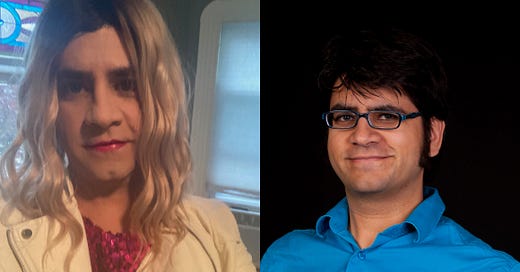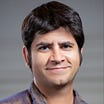What is philosophy to you?
Philosophy is the love of wisdom – or more specifically, the disciplined search for wisdom that comes out of that love. It’s a quest, a search for deep answers that isn’t satisfied with the easy answers offered by others around you. Like all of our knowledge, philosophy is grounded in the traditions of those who came before us – including traditions of scientific inquiry, of political commitment, and of what is often called “religion”. But philosophy seeks to take the next step, to ask the next question that others who share your tradition aren’t asking – and that can deepen your commitment to the tradition, or take you in a completely different direction. Being philosophical means crossing boundaries – refusing to let your inquiry be contained by the bounds set by a discipline. You’re looking for truth wherever it is to be found.
How were you first introduced to philosophy?
I was lucky to get taught some philosophy in high school, through a course offered there and an enrichment mini-course taught through Queen’s University. It happened that at the same time, I was exposed to my first real political debates, in online forums that predated the internet. Those debates led me to look deeper and think about the presuppositions underlying my own positions – which those philosophy classes helped me do. And I’ve never stopped that deeper looking. A friend in a great books program kept pushing the hard questions further during undergrad, and then Buddhism changed my life in Thailand. The big question in my mind was how the Buddhist ideas I’d learned could make sense alongside the very different Western ideas I’d learned before, and that question has driven my philosophical work ever since.
How do you practice philosophy today?
I am driven to think philosophically in writing; I don’t think I could stop that if I wanted to. Above all, I write biweekly philosophical essays on Love of All Wisdom, my philosophical Substack and blog; I’ve been doing the blog for nearly fifteen years now. I also write on and maintain the Indian Philosophy Blog. I also have more scholarly philosophical writing projects, including a book (tentatively entitled Serenely on Fire: The Philosophical Case for Mindful Serenity) that I’m looking to publish. For a living, I facilitate others’ practice of philosophy at Northeastern University’s Ethics Institute, especially by finding money to help them do applied philosophical research and bring philosophers together in workshops.
What is a philosophical issue that is important to you?
I’m an ethicist at heart, but I am less focused on unusual or hypothetical situations (like the trolley problem) and more on the challenges of everyday life and how to live it well. I consider myself a virtue ethicist. My deepest concern is with how human beings should live – which includes not just what we should do, but also what we should feel. Buddhism is all about the proper conduct of the mind and heart. I think it’s particularly important to be less angry and to be more concerned with our mental states and less with our external situations.
What books, podcasts, or other media would you recommend to anyone interested in philosophy?
My biggest recommendations are for books that have stood the test of time while still being approachable for someone who hasn’t read them before. I am especially fond of Śāntideva’s Bodhicaryāvatāra – also called the Guide to the Bodhisattva’s Way of Life. One chapter of it is really tough going, but the rest of it is a beautiful, powerful, and relatively clear statement of how we should live our inner lives. The major Confucian and Daoist classics – the Analects, Mencius, Daodejing, and Zhuangzi – are also full of wisdom. On the Western side, there are Plato’s more accessible dialogues (like the Apology, Crito, and to some extent the Republic) and Nietzsche’s Genealogy of Morals; Plato and Nietzsche will each change your way of looking at things, but in very different ways. Finally, Martha Nussbaum’s The Therapy of Desire is great at explaining the relevance of ancient wisdom for us today.
Amod Sandhya Lele is a gender-fluid philosopher who goes by Amod when masculine and Sandhya when feminine. (He more commonly, though not exclusively, presents masculine in philosophy spaces.) He writes on cross-cultural philosophy at Love of All Wisdom and co-manages the Indian Philosophy Blog. He finished his PhD on Buddhist ethics at Harvard University in 2007 –through the Committee on the Study of Religion because at that time one generally couldn’t study non-Western thinkers in a philosophy department. He has taught in the religion departments at Colorado College and Stonehill College and in the philosophy department at Boston University. He has published in journals and magazines including the Journal of Buddhist Ethics, Philosophy East & West, and Tricycle: The Buddhist Review.
Personal website: https://loveofallwisdom.com/
.






